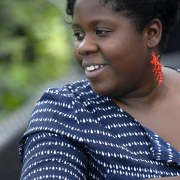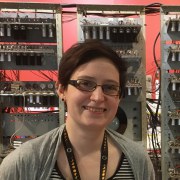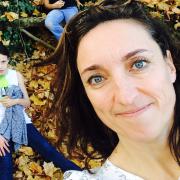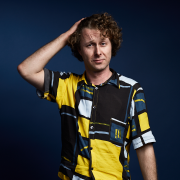Equity and Inclusion in and through evaluation
Malta Experience Auditorium
Research, theory & evaluation
Evaluation can both use equitable and inclusive methodologies and support equitable and inclusive practice in STEM communication. As equity and inclusion has been forefronted in science communication, so too have content producers, researchers and evaluators increasingly prioritised this in research and evaluation. This has led to new methods and considerations, such as co-producing evaluation and greater thought of research ethics and power dynamics. This session will feature case studies from projects which have used equitable and inclusive research methods to evaluate and create STEM content. Speakers will highlight successes, challenges and lessons learned to provide new examples and discussion points on this innovative area of practice. Speakers will also reflect on the benefits of prioritising inclusive and equitable evaluation and how we can use the learnings of this work to understand the needs of diverse audiences, make evidence-based decisions and create meaningful content.
Outcomes: what will participants get from this session? Skills, knowledge, experience etc.
Participants will…
- Further their understanding of the value of equity and inclusion in research and evaluation and how this can further science communication practice
- Gain case studies, examples and lessons learned that could be applied in a range of contexts
- Be inspired by conversation discussing an innovative area of practice in evaluation and science communication
Session speakers
Lorna is a Senior Audience Researcher at the Science Museum Group. Recently she has been evaluating to what extent the London Science Museum’s new medical galleries are Open for All. This evaluation aims to be equitable in its delivery, and the results of the project will be used to support inclusive practice, informing the development of future STEM content. Lorna will share lessons learned from the project on equitable evaluation methods, delivery and dissemination.
Audience Research and Innovation Manager
Bethan, who is Audience Research and Innovation Manger at the Centre for Life in Newcastle UK, will be talking about their findings of the Inspiring Science Fund (ISF) project. Discussing findings from the community programmes on both participants and staff she will be looking at the legacy of the project, how the learnings have informed programming going forward, research ethics, and the shift in organisational culture.
Annette is part of the communication department and is head of a digital team in the Deutsches Museum, Munich. She will present how science related content in the Deutsches Museum App has been created with a design for all approach. The app is available with BYOD and on rental devices. She will present how the app was evaluated and how we will use the research to improve the app and the content in order to make science communication more equitable and include a diverse range of audiences.
Learning and Engagement Researcher
Shaun Ussher is a psychological researcher, educator and science communicator. He has experience working with participant based research in universities, science centres and NGO's on a variety of scientific and educational projects with diverse audiences. Shaun will share his experience and results from his new project “Memories from Museums” and compare and contrast the equitable practices that need to be employed across different institutions to allow for research to be carried out effectively.
Producer European Projects
Andrew Newman is a producer for the European Platform for Digital Humanism at Ars Electronica. He develops STEAM learning experiences to foster transdisciplinary collaboration, a vital skill for a sustainable future that necessitates nurturing empathy, equality, inclusivity, and solidarity. Andrew will discuss learning from the evaluation of these qualities to develop accessible programs that engage diverse communities, specifically in the context of the citizen science programme IMPETUS.





